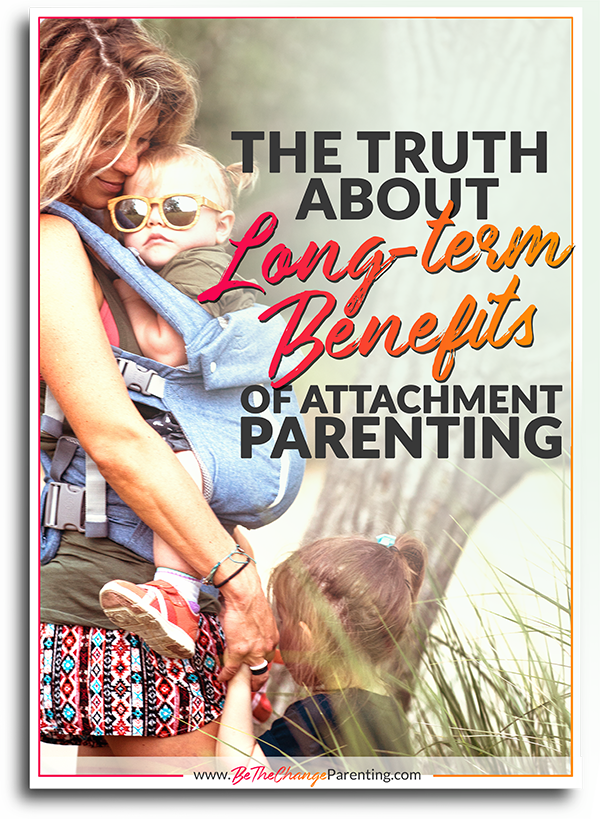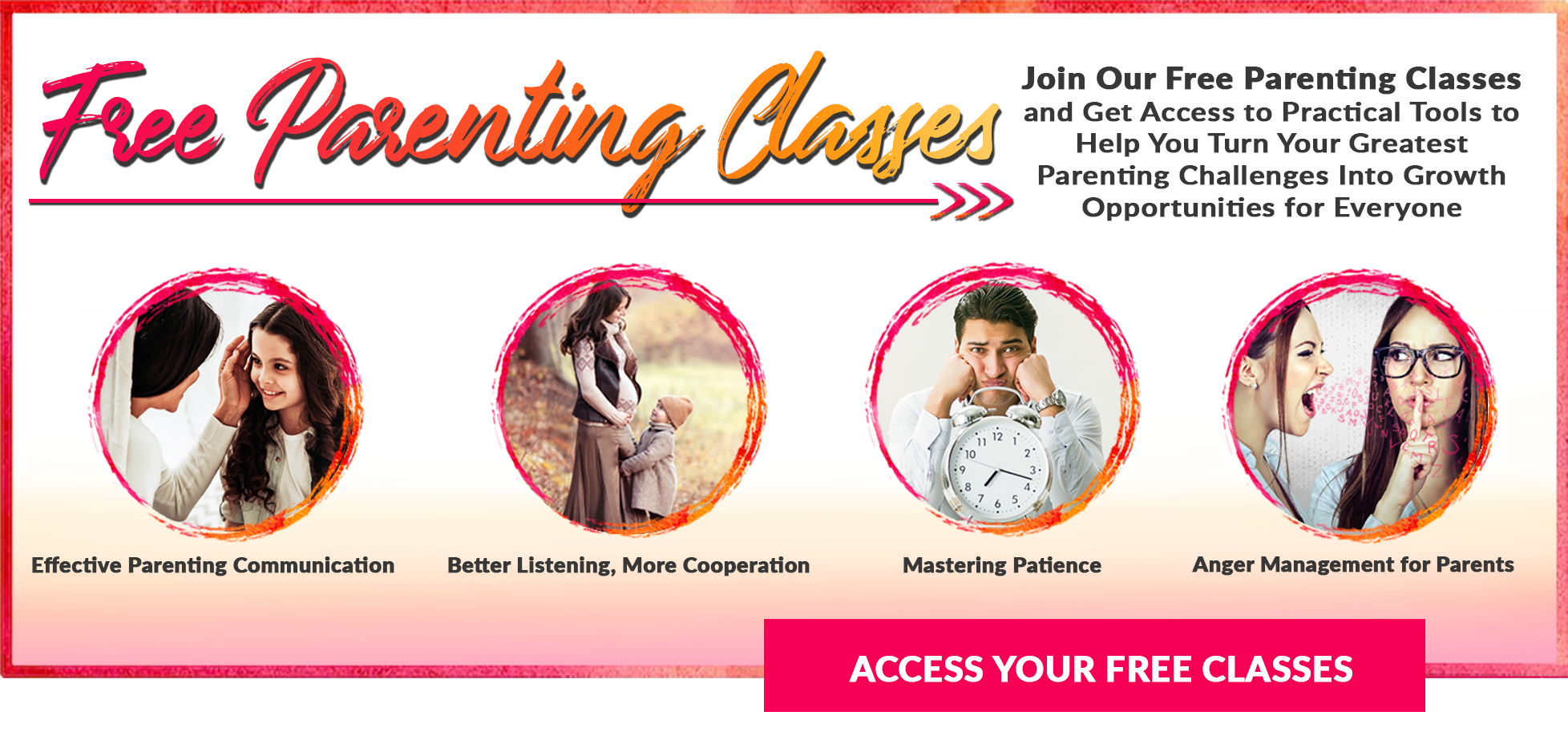The Truth About Long term Benefits of Attachment Parenting
The world has started to realize the importance of attachment between the child and parent at a young age – which is great.
But how does that affect my teen, more than a decade later?
So, let’s start from the beginning.
What is attachment Parenting?
It’s a force of attraction pulling us together. It’s at the heart of all relationships.
It’s the need and want to be close and to have connection, physically, emotionally and even behaviorally.
We are all creatures of attachment and it’s not even something that we are aware of.
It a part of nature, just like gravity and compasses point to the north pole. It’s a primary instinct for parent and child to become attached to each other.
BUT… NOW HERE’S THE CATCH. IT’S NOT ONLY PHYSICALLY.
As Gabor Mate explains in his book Hold onto Your Kids, just like a child needs a parent to care for them physically until he can stand on his own two feet and take care of himself when he’s grown, so too a child needs to be attached to their parents emotionally to know how to think, what is right from wrong, to be able to orient themselves in the world, to know how things are done, to learn about their culture.
All this until they can stand on their own emotionally, not just physically.
Attachment gives a child a sense of orientation. Which is very important. A sense of orientation is to have a sense of who they are, of what is real, why things happen, what is good, what things mean.
Children aren’t capable of orienting themselves, they need help. If they don’t have that help, they feel disoriented.
That’s like feeling lost.
A child’s biggest fear – getting lost.
When a child has that good healthy attachment they don’t feel lost, they have someone to hold onto, who will show them, teach them, feel like they belong.
Because in the mind of the child, the parent knows the way.
☞ If you like this post, you will love: Smart Ways For How To Deal with Toddler Tantrums
NOW WHAT HAPPENS WHEN THE PARENTS AREN’T AROUND TO HOLD THAT HEALTHY ATTACHMENT FOR THEIR CHILD?
What happens, let’s say when a child becomes attached to her peers instead?
Then they become the ones with whom she will seek closeness, she will look to her peers for cues on how to act, what to wear, how to look, what to say, and what to do.
They will become the guides to show what is good, what is happening, what is important and even how she defines herself.
But we don’t want our kids’ peers to be the ones they depend on. They are not the ones to give our children a sense of themselves, to point out right from wrong, or distinguish fact from fantasy, to identify what works and what doesn’t and to direct hem as to where to go and how to get there.
Having their peers guiding them is like having the blind leading the blind. They are lost and disoriented. In reality it does not save them from getting lost, only from feeling lost.
Because they have their peers to follow so they don’t feel lost.
Why is it that in today’s world children so readily transfer their attachments from nurturing adults to their peers? It’s not necessarily the failure of individual parents.
☞ If you like this post, you will love: How to Talk So Your Kids LOVE to Listen
In the last 100 years we’ve been thrusting children, from a very young age into situations that encourage peer orientation. We send them to school from a very young age and then to sports and after school activities and we encourage play dates and being with friends.
Kids today, find themselves in attachment voids everywhere, where they lack consistent and deep connection with nurturing adults.
A kid spends the whole day at school, then has sports practice, comes home and plays with the neighbors, maybe sees his parents for a short while for dinner. When is there time for that deep connection?
The time to be nurtured and guided by his parent?
In recent years, many parents have become more aware of the importance of attachment in infancy and in the toddler years, but what happens when a kid hits elementary and middle school and high school?
We expect and even encourage them to be spending more time with friends. If a kid doesn’t have so many friends, we bring them to therapy wondering what’s ‘wrong’.
☞ If you like this post, you will love: 3 Tips to Help Your Child Develop Social Skills
Of course, a kid should have friends and helping them have friends is certainly important.
But what I’m saying is that we don’t necessarily recognize the importance of attachment at the tween and teen years. The time spent just talking, taking walks, talking about life, giving over culture, opinions, giving them a sense of themselves, pointing out right from wrong.
In short orienting.
Guiding.
Being your child’s compass.
A sounding board.
Someone with whom he can share. Kids of all ages need stability, presence, attention, advice, stories and a listening ear.
We’re lacking attachment, to parents, to the older generation – lacking time with grandparents and aunts and uncles. Not once in a while family get-togethers, but that real one on one time.
For most of human history it was the older generation, even better than parents, who could offer that unconditional loving acceptance that is the bedrock of emotional security.
Many of us, feel like we’ve lost the power to parent our kids.
THEIR PEERS HAVE TAKEN OVER, NOT TO MENTION THEIR I-PODS AND SOCIAL MEDIA.
Here’s the key to solving that problem.
The secret of a parent’s power is in the dependence of the child.
Every child needs nurturing. Every child is born dependent on his parents. But many kids don’t voice their needs once they’ve entered grade school.
But that feeling of being dependent is still there and it’s a good thing.
Why is it a good thing?
Because the power to parent is not in the fact that your child is dependent, it’s that he depends on YOU!
The power to parent is not specifically that your child is needy. The power is in the fact that he turns to YOU to be the answer to his needs.
You can’t emotionally take care of a child who only depends on you for food and shelter alone. He needs to depend on you emotionally.
Nurture a healthy attachment with your babies, your toddlers, your preschoolers.
But don’t give it up there. That’s not at all where it ends.
Nurture that healthy attachment all the way through the years. Give it real time. Quality parenting, one on one parenting, relationship time.
Then your child will grow up looking to you for guidance, for emotional support, to be his sounding board and where he goes for getting good advice.
So long as you have that great attachment, that you’ve nurtured throughout the years he’ll be turning to you for advice right through his teens and into his 20s and beyond.
(Heck I still call my parents for advice…. I refer to my dad my own personal 1-800 godaddy adviceline!)
You have the power to parent your child so long as he turns to you to answer his needs.
Nurture that relationship so he’ll do just that.







